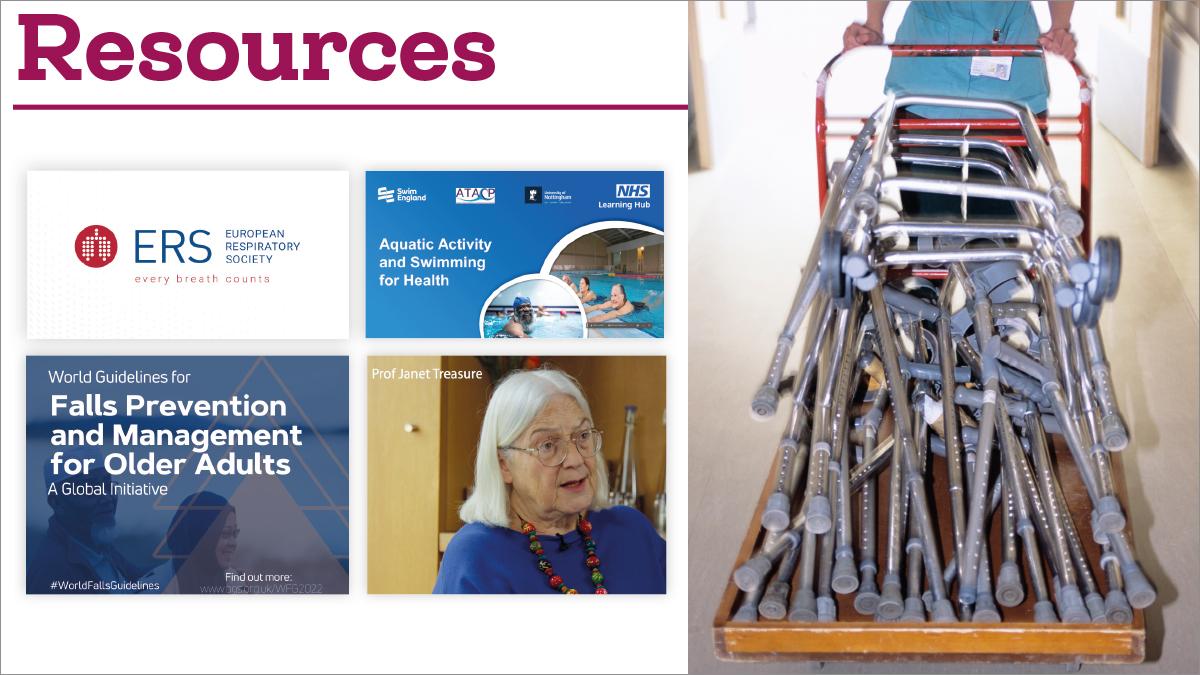A selection of tools and information sources that you may find useful

A swimming and aquatic activity e-learning resource, made in partnership with physio Sarah Cox and the Aquatic Therapy Association of Chartered Physiotherapists. It was created following research that highlights how healthcare professionals intuitively believe swimming and aquatic activity provide unique health and wellbeing benefits, ideal for MSK conditions, chronic pain and weight problems, but they lack the knowledge and skills to make this a more routine conversation with patients. Aquatic Activity and swimming for health.
Walking aids recycling
If you come across any resources and tools you would like to share with other clinicians please send them to frontline@csp.org.uk
A set of resources for staff involved in the procurement and distribution of walking aids to help them kick start or expand a return and reuse scheme has been released. NHS England say that physio staff have a role to play in raising awareness of the existence of return and reuse schemes at point of issue of equipment. Find out more here.
Falls management
The world falls taskforce, with input from UK-based physios Dawn Skelton and Sally Lamb, has published World Guidelines for Falls Prevention and Management for Older Adults: A Global Initiative.
It outlines a comprehensive approach to the management of falls in older adults and highlights the role physiotherapy can play in falls risk reduction, assessment, prevention and rehabilitation.
Eating disorders
A CPD-certified eLearning course by social enterprise Family Mental Wealth is available for all healthcare professionals who may come across eating disorders in their day-to-day clinical work.
Bronchiectasis
Respiratory physiotherapist and King’s College lecturer Dr Arietta Spinou has led an international expert task force on airway clearance techniques (ACT) in adults with bronchiectasis, resulting in a European Respiratory Society statement which summarises current knowledge and makes recommendations to improve the future evidence base. The summary considers the advantages and disadvantages of each ACT.
Resources appearing on this page are not necessarily endorsed by the CSP
Number of subscribers: 1




































